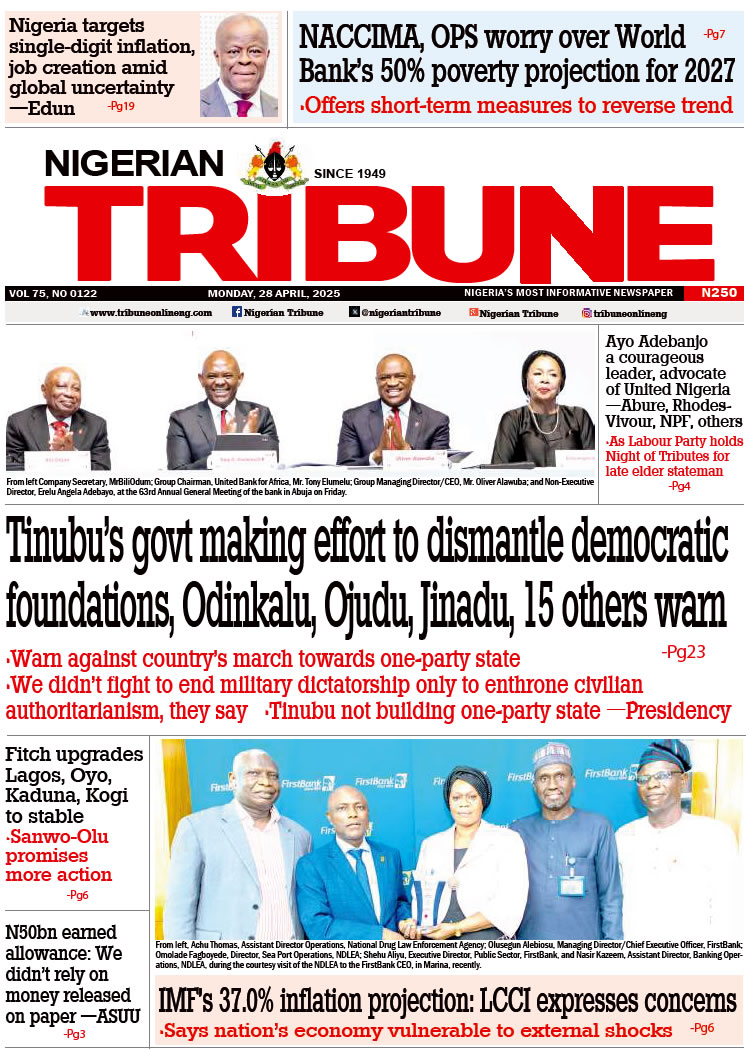The Federal Government has declared cancer a notifiable public health disease of importance as a critical step towards strengthening the national response to the growing burden of cancer in Nigeria.
The Minister of State for Health and Social Welfare, Dr Tunji Alausa, noted in his ministerial address at the National Workshop on Cancer Registration in Abuja that the declaration is a critical step towards strengthening Nigeria’s national response to the growing burden of cancer in the country.
Alausa added that the decision to make cancer a notifiable disease is informed by the alarming increase in cancer cases and deaths in Nigeria.
While quoting the World Health Organisation (WHO), the Minister said that cancer is the second leading cause of death globally, with approximately 127,000 new cases and 79,000 cancer-related deaths reported in Nigeria in 2022 alone.
He lamented that a lack of accurate data on cancer incidence and prevalence has hindered the government’s ability to effectively plan, implement, and evaluate cancer control interventions.
“By making cancer a notifiable disease, all private and public healthcare institutions in Nigeria are now obligated to report all cases of cancer they diagnose to the National Cancer Registry, hosted at the National Institute for Cancer Research and Treatment (NICRAT).”
“This registry will serve as a central database for cancer cases, providing vital information on cancer trends, patterns, and outcomes in Nigeria.”
“The reporting of cancer cases will enable us to improve cancer surveillance and monitoring, allowing for early detection and treatment of cancer cases.”
“Enhance our understanding of cancer epidemiology in Nigeria, informing evidence-based policy decisions and resource allocation.”
“Develop targeted cancer control interventions, including screening programmes, treatment protocols, and palliative care services.
“Strengthen collaboration and coordination among healthcare providers, researchers, and policymakers to combat cancer.” He explained.
Alusa, therefore, urged all private and public healthcare institutions to comply with this directive, as it is crucial to our collective efforts to reduce the burden of cancer in Nigeria.
He reiterated that the Federal Ministry of Health and Social Welfare will provide technical support and guidance to ensure a seamless reporting process.
“I also want to assure Nigerians that the confidentiality and privacy of cancer patients will be protected, in accordance with international best practices and national guidelines.”
“I call on all stakeholders, including healthcare professionals, researchers, policymakers, and the general public, to join hands in this effort to combat cancer and improve the health and wellbeing of Nigerians.”
Meanwhile, the Director General of NICRAT, Prof. Usman Malami, explained that cancer is not just a disease but a formidable adversary that affects millions globally, including right here in Nigeria.
He added that the importance of accurate cancer registration cannot be overstated, as it serves as the foundation upon which effective healthcare policies and interventions are built.
“It provides us with crucial data to understand the burden of cancer, identify trends, and ultimately, plan and allocate resources more effectively.”
“In Nigeria, improving cancer registration is a vital step towards enhancing our healthcare infrastructure. It enables us to better understand the prevalence of different types of cancer across regions, the demographics most affected, and the effectiveness of our current treatments and interventions.”
“Without comprehensive and accurate data, our ability to combat this disease effectively is severely hampered,” he said.
ALSO READ THESE TOP STORIES FROM NIGERIAN TRIBUNE








